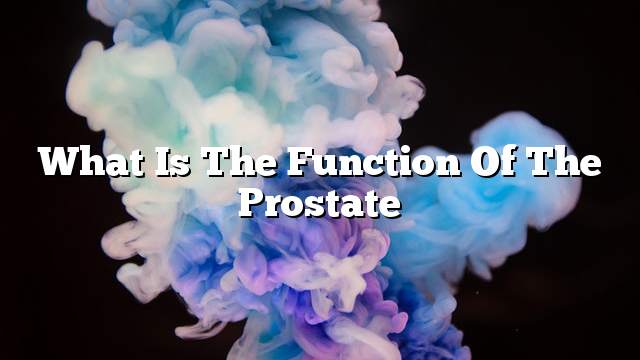The prostate
The prostate is a male genitourinary located in the lower abdomen of the back, between the bladder and penis, and specifically in front of the rectum. It resembles a chestnut. It weighs between 14 grams and 20 grams and consists of four cloves containing a number of vesicles that supply several channels to secrete Prostate fluid.
Prostate function
The prostate secretes the semen with the Cooper gland. It is surrounded by several veins known as the prostate cluster, which pumps the blood to the reproductive organ during the erection. The prostate excretes through the sexual process. This fluid contains phosphoric fat, which reduces sperm viscosity in order to facilitate the movement of the sperm.
Prostate diseases
Prostate congestion
Male prostatic disease usually occurs during puberty, or shortly after, due to increased blood flow in the reproductive system at the time of sexual arousal of the male, and not to discharge the semen regularly, and accompanied by congestion secretions before or after urination after the treatment, the doctor Describes antidepressants.
Prostate enlargement
Prostate enlargement is a benign tumor that affects males after the age of fifty, causing problems in urination, such as feeling pain when urinating, urinating and repeating urine, and some may suffer from urine retention, and treatment of this inflation by taking certain medications prescribed by the doctor in the case of simple, Or it can be resort to surgical treatment in heat or freezing in certain cases, which is one of the latest treatments for the prostate, and can be treated by radiation therapy to reduce the prostate or even laser resection or surgery.
Prostate tumors
Prostate tumors usually occur after they are 60 years of age and are often malignant. The doctor uses CT and ultrasound to diagnose these tumors. Chemical, and can be surgically removed, after taking a sample to confirm the type of tumor.
Tips for maintaining prostate health
- Drink plenty of water to reduce urinary concentration.
- Avoid junk food, coffee, soft drinks, and processed juices, because they affect blood composition, resulting in inflammation of the bladder wall.
- Avoid sitting for a long time without movement. It is necessary to move for at least five minutes every two hours, to ensure that blood continues to flow naturally in the prostate.
- Caution from exposure to cold, to avoid increasing the number of urination, for fear of prostate problems.
